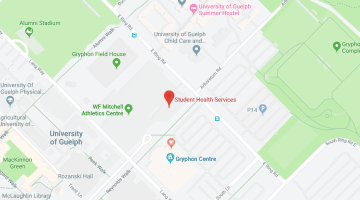
U of G Cannabis Statement [5]
Legislation
The Cannabis Act [6] came into place on October 17, 2018, making cannabis legal in Canada.
How old do you have to be to buy, use, possess and grow recreational cannabis?
The Cannabis Act of Ontario [8] maintains the same legal age to use cannabis as it does with other controlled substances such as tobacco and alcohol. The minimum age to buy, use possess and grow recreational cannabis in Ontario is 19.
Health Information
What is cannabis?
Cannabis, also known as marijuana, is derived from the plant Cannabis sativa. The flowers, fruiting tops and leaves are dried and used to produce a greenish brown material that resembles tobacco. The flowering tops of the plant produce can produce hash oil.
What are potential side effects of using cannabis?
- The effects from smoking, vaporizing or dabbing cannabis can be felt very quickly and can last a long time: it may only take seconds or minutes to feel the effects of cannabis, and the effects may last as long as 24 hours.
-
When eating or drinking cannabis, you may begin to feel the effects 30 minutes to 2 hours after ingestion. The effects may last as long as 24 hours.
Short-Term Health Effects
Cannabis plants have flowers and leaves, and both are used to create mind-altering effects, for example:
-
Feeling “high”, or euphoric
-
Feeling relaxed
-
The sensation of enhanced physical senses, such as sight, taste, smell and hearing
Cannabis is well known for making people feel relaxed and happy, but some people may experience negative, unpleasant effects. These negative effects can be felt by both your brain and your body. Effects impacting the brain may include:
-
Feeling confused
-
Sleepiness (fatigue)
-
Sensations of anxiety, fear, panic
-
You may have difficulties with memory and concentration, or a shorter reaction time and attention span
Other short-term effects affecting the whole body can include:
-
Blood vessels damaged from smoke, if smoking cannabis
-
Fainting due to decreased blood pressure
-
Increases in heart rate. This poses a risk to people with heart conditions and can lead to a heightened risk of heart attacks in the future
Using cannabis can result in psychotic episodes which are characterized by the following:
-
paranoia
-
delusions
-
hallucinations
Long-Term Health Effects
Your brain can be further affected by longer term use of cannabis. These effects include:
-
Increased risk of addiction
-
Impaired memory
-
Difficulty concentrating
-
Decreased intelligence (IQ)
-
Impaired ability to think and make decisions
The effects appear to be worse if you:
-
Start using early in adolescence as brain development does not stop until around 25 years of age
-
Are a frequent cannabis user and use cannabis over a long period of time
These effects may last for several days or up to several months and beyond after you stop using cannabis. Even once cannabis use is stopped, the effects may not be completely reversible.
Long term smoking of cannabis has similar effects to smoking tobacco. These effects can put your lungs at risk through the development of the following conditions:
-
Bronchitis
-
Lung infections
-
Chronic (long-term) cough
-
Increased mucus buildup in the chest
More information about the health effects of cannabis can be found on the Health Canada website [9].
Where can I find more information about using cannabis responsibly?
Information on using cannabis responsibly can be found:
-
Canadian Research Initiative in Substance Misuse (CRISM)
-
University of Guelph – Wellness Education Centre
-
Drug Information Kit
 Where can I access more information about cannabis?
Where can I access more information about cannabis?
For more information about cannabis:
More information about the Cannabis Act of Ontario can be found here [8].
I’m concerned about my cannabis use. Where can I get support?
On-Campus - J.T. Powell Building
-
Health Services [16]
-
Counselling Services [17]
Off-Campus
-
Here 24/7 [21] (24 hrs. Addictions, Mental Health & Crisis Services)
-
Good2Talk [22] (24 hrs. helpline for Ontario post-secondary students)
-
Crisis Text Line – Text “UofG” to 686868
 Where can I access more information about cannabis?
Where can I access more information about cannabis?